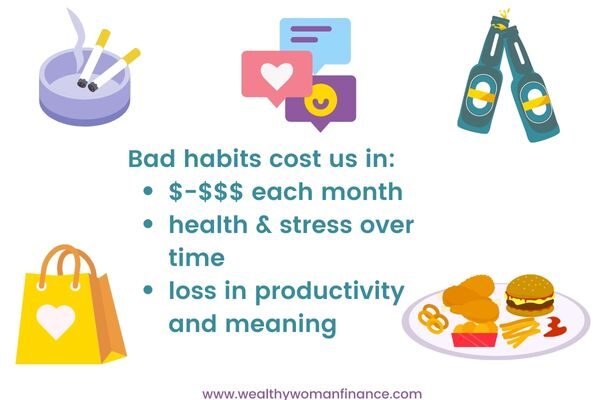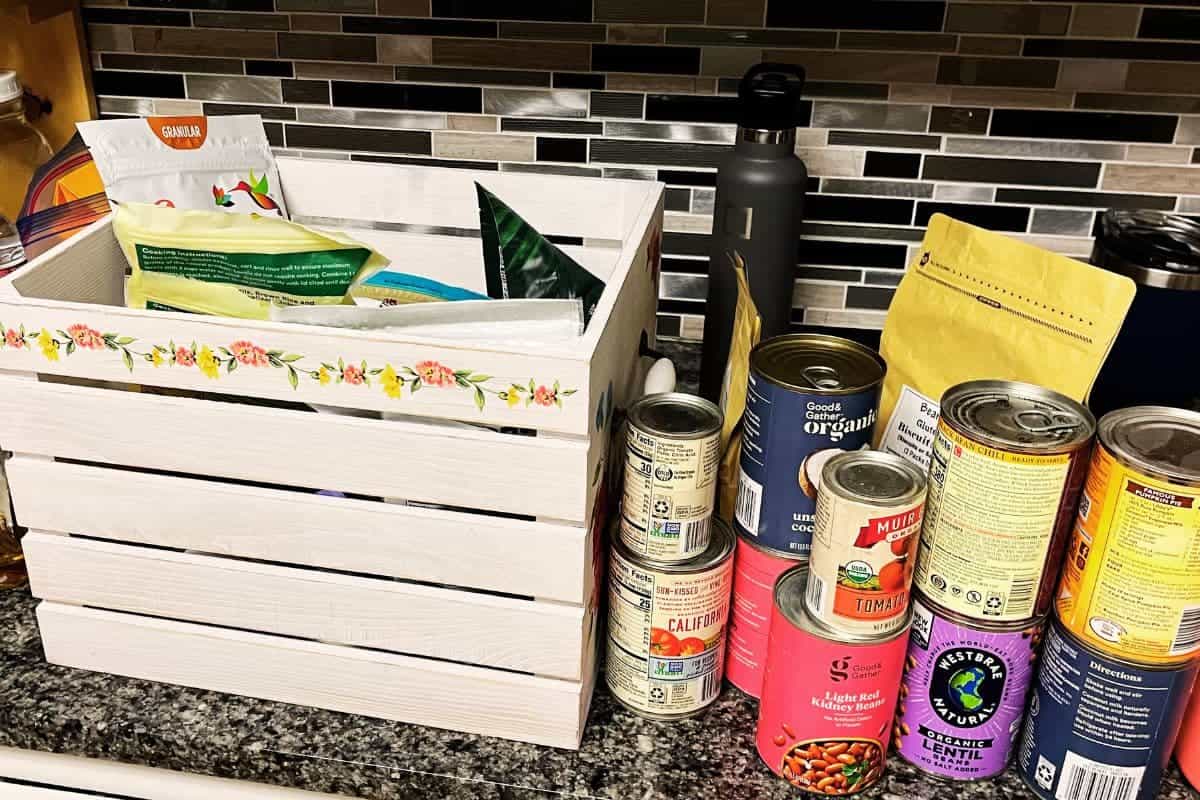Free House Savings Tracker: Get Into Your Dream Home in 2024
Grab your free printable house savings tracker and get started today!
Saving for a home can be intimidating. It’s not chump change, and you’ll need to buckle down to get there. But you’ve got this. This step-by-step guide helps you turn can’t into cans. And worry into belief.
Your dream home awaits!
How much should you save for a downpayment?
That answer is up to you. Some conventional loans only require 3-5% down.
Why I Recommend 20% Down
However, if you put less than 20% down, you’ll most likely pay extra fees or a Private Mortgage Insurance (PMI).
Having a larger downpayment has other advantages too.
- you could save thousands in interest over the life of your loan
- potentially lower interest rates
- more affordable monthly payments
If you have to pay PMI now, keep in mind that often you can remove it once you have 20% in equity (through payments, remodeling, etc)
How to Start Saving for a Home Down Payment

1. Evaluate Your Needs
First, you need to get clear on what your most important priorities are. Do you need to be close to work? In a good school district? Are you looking for a specific home layout?
Take the time to consider what you’re looking for.
2. Set Your Budget
Next, look at your income, expenses, savings, and debt. Set your housing budget and what you need your monthly payments to be. Use the free calculator to calculate your home mortgage estimates.
When planning to buy a house, don’t forget about:
| Insurance costs | If you hire local movers, you’ll pay between $900-$1500. A long-distance move can cost up to $10,000. (RocketMortgage) |
| Maintenance costs | If your water heater, roof, or other large items need repair soon |
| Closing costs | About 3-6% of the total loan amount. These are usually the responsibility of the buyer. (They can often be rolled into your mortgage loan) |
| Moving costs | If you hire local movers, you’ll pay between $900-$1500. A long distance move can cost up to $10,000. (RocketMortgage) |
2. Set a specific Downpayment goal
Understand how much you’ll need to save each week or month. This will depend on how long you have to save. Once you have your big goal, chop it into smaller time frames like 2 weeks or a month.
Consider the 28% Rule: You shouldn’t spend more than 28% of your gross monthly income on your housing payment. (income before deductions)
4. Open a separate Home savings account
Open an account that’s solely for your home downpayment. Give it a fun bank nickname so that you won’t be tempted to take money out for other things.
5. Set up automatic transfers
Next, set up a direct transfer from your checking account to your savings account. Create a sinking fund category that automatically receives the money each month.
Bonus Step 6. Stay Focused & Motivated
Saving for a home is more of a marathon than a sprint. It requires patience and focus long-term. (Which is sometimes easier said than done!) Use the free home savings tracker pdf in this article to mark your progress and keep you motivated!
House Savings Tracker Challenge
Break down your big savings goal into short-term savings sprints. These challenges put pressure on you to cut unnecessary spending in a big way.

Here’s an example: if you’re saving $20,000 for your down payment, challenge yourself to save $5000 in the first 30 days.
Even if you miss your savings challenge goal, remember that you’ll have saved far more than not doing it at all.
Shoot for the moon. Even if you miss, you’ll land among the stars.
Norman Vincent Peale
Related:
Savings Plan & Strategies for Home Saving
These ideas go beyond the regular low-hanging fruit. In the case of saving for a house, you need more big-ticket ideas. Here they are!

Check Your Credit Score
Your credit score affects the interest rate on your future home loan. A high credit score will give you the best rates, which save you thousands over the term of a home loan. As you save, check your score and see what you can do to give it a boost.
Chop Down Your Debt
If you’re on a mission to buy a home, consider diverting extra income toward your debt. While this might seem counterintuitive, mortgage lenders look at your debt-to-income ratio (DTI). A high debt-to-income ratio can impact whether you qualify for a mortgage and how high the interest rate will be.
Look at exactly how much you owe on your credit cards, personal loans, student loans, and auto loans. Then, create a debt payment plan to tackle it.
Put your cash in a CD or high-yield savings account
Traditional banks pay horrible interest rates. By shopping around for an online bank, you can make more in interest while you save. And you won’t have to do any work once it’s set up.
Move in with someone short-term
Splitting rent, utilities, and groceries for even a few months could double your savings.
Do Better With Groceries
Buying groceries once a month instead of three times a week can massively cut down on impulse buying. You can also shop at a cheaper store. Stores like Trader Joe’s offer high-quality food for less.
Rent out a spare room
Put that empty space to use and make extra cash! You can also do this with a car or garage space you don’t use.
Related: Great Ways to Make $300 Quickly
Skip a vacation
It’s short-term. One $3,000 trip can be a hefty chunk of change towards your home.
Save your windfalls
Tax refunds, inheritance, and work bonuses should all be funneled into your growing house fund.
Ask for a raise or promotion
If you feel you’ve been working at a high level, then value yourself. Ask for more money! The worst they can say is no. The best they can say is yes – and you’ve now put yourself one giant step closer to your dream home.
Sell your stuff
Clean out your closets and sell things online! You’ll feel mentally lighter, make money, and have less stuff to move when you buy your home. What a win!
Try a free 30 day declutter challenge to get you in motion.
Make More Job Income
Work freelance, start a home business, or take on extra hours at your job. This can be temporary, and provide a massive boost in savings.
Rent for cheaper while you save
Live cheaply short term so that you can live it up in that dream home.
Challenge yourself to not spend
Challenge yourself to do a no spend day once each week. It’s a small thing, but can cut down considerably on impulse spending. And make you more aware too!
Ditch a Bad Habit

Depending on how much you drink, smoke, eat junk food, party, or do any other not-so-great habit – ditching it for even 30 days can help you put hundreds of dollars in your house fund.
Work With Your Partner on the House Savings Tracker
Talk about your money goals with your partner and create a home savings plan together. Two savers are better than one! And getting on the same page with your family will make saving much easier.
Related: Best Side Hustle Ideas for Couples
Resist Adding to Your Life
Saving for a house is not the time to add new pets or big expenses. Remind yourself that it’s temporary, and you can add these things in when you get settled.
Save Even More on Food

- Eat out less & cook at home
- Meal plan a month at a time
- Waste Less: Try a Pantry challenge or freezer challenge to help you use up what you already have.
Use Your Network to Get Creative
Team up with others to go after your dreams.
- Share streaming accounts.
- Carpool to work.
- Move in with someone and split the rent.
Shop Around for Insurance
Spending on auto insurance is up, and you might be one of the many Americans over spending on it.
Compare auto insurance rates to see >>
Use a Budget Plan to Guide You
Try the zero based budget plan to see where your money is going each month. This budget starts from scratch. It’s a great one to use when you want to evaluate every expenditure. When you’re saving for a home, every dollar counts!
Tips for Saving on the Home Itself
How do you make the most out of your housing money? Here’s how!

Check out the Misfits
My husband and I bought our first home during the 2009 recession. The only homes we had to choose from then were foreclosures. This turned out to be a blessing in disguise. We got a steal, learned many great home repair skills, and ultimately changed our perspective on homes that needed tender loving care.
Understand needs Vs wants
Determining needs and wants in a home can be tricky. Make a list of your top 3 priorities. Those are most likely your “needs.”
Move to a cheaper city
This one is simple but not necessarily easy. The hard money truth: living in an expensive city could be what’s keeping you broke. And the only way to remedy this (and easily put thousands in your pocket) is to have an open mind and look elsewhere.
Even a cheaper part of the same city can bring a huge variation in prices!
Attend first-time home buyer seminars
This is a great way to learn about the home buying process and start talking to agents and lenders. Often they’re free!
Start talking to lenders
Shop around for lenders that have the best terms and interest rates.
Lower your home budget
Realtors often show you the high end of your budget. But if this is more than you can afford, consider lowering your budget and sticking to it. It’s not easy when homes go into bidding wars – but the last thing you want to do is put yourself in a financial situation you regret.
Related: Best Month to Buy a Home
Understand Financing Terms
The length of your home loan comes with pros and cons.
| Shorter home loans (15 years) | lower interest rates | higher monthly payments | You’ll pay thousands less overall. Make sure you can handle the monthly payments. |
| Longer home loans (30 years) | higher interest rates | lower monthly payments | You’ll pay more over the life of the loan but have more of your money available each month for investing and saving. |
Remember that a larger down payment decreases your loan amount, which impacts both the term and the interest you’ll pay. It’s why it’s so important to save!
House savings tracker printable free
Now, if you’re thinking “how can I track my savings?” – here’s how! With the free printable house savings tracker!

How to Stay Motivated While Saving Your House Deposit
Saving for a home requires patience and persistence. Use these to help!
- Try a commitment card to keep you accountable
- Make a dream home vision board: Include pictures of the type of home you’re saving for.
- Work on your mindset while you save, with money mindset exercises and ways to overcome limiting beliefs.
- Sign up for the free wealthy woman newsletter. It’s full of motivation and wealth tips right in your inbox.
What’s Next?
The free house savings tracker printable is just the beginning of the goodies I offer. Grab these free money games to have more fun while you save!
And pick up the free car savings tracker printable too!






